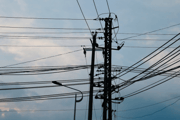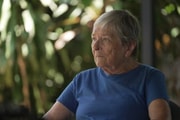Struggling to survive? The lack of bulk-billed medical services is affecting pensioners and workers alike
- Replies 16
With the rising costs of living these days, just mere survival is hard, especially for retirees, pensioners and seniors. For many, life has become a financial struggle to make ends meet and pay for the various medical bills that come with ageing.
A heart-wrenching example of this can be found in Paul Bevington, a pensioner who skips dinner three times a week to make seven days' worth of groceries last a fortnight.
He does this while living with several chronic health conditions that require him to visit the doctor multiple times each year.
To make matters worse, medical appointments are another worry for him. 'Sometimes I think the only thing keeping me going is the love of my dog, Possum,' he said. 'I'll go hungry before I make her go hungry.'

Unfortunately, Mr Bevington is also struggling to find a general practitioner (GP) who will bulk bill his medical appointments in his hometown of Alice Springs, in the Northern Territory. Due to the absence of bulk billing options, he pays a gap of $51 for each visit, making it even harder for him to stretch his pension.
Such burdensome costs force him to restrict his budget on groceries and fuel, leading to a life that is mostly confined within four walls, which significantly affects his mental and emotional well-being.
'At the moment, when you're basically stuck in four walls, you tend to go...stir crazy,' he said. 'And that's about where I'm getting.'
For this very reason, the 2023-4 Federal Budget announced a new measure intending to encourage more doctors to provide free healthcare to those who hold concession cards, under 16-year-olds, and pensioners like Mr Bevington. It aims to do this by tripling the 'bulk billing incentive' – the amount of money the government pays GPs to bulk bill their services.
Regions like Alice Springs, where the operational costs of running a GP clinic are relatively higher, are among those expected to witness the greatest impact, according to Dr Sam Heard, the NT Faculty chair of the Royal Australian College of General Practitioners (RACGP).
Dr Heard mentioned that there are no more bulk-billing GPs left in Alice Springs, except for a few specialist Indigenous primary health services. The increased costs of operating in such remote locations make it challenging for GPs to bulk bill their services without facing significant financial troubles.
Nevertheless, the new measure may potentially change that, compensating GPs for the income lost by not charging a gap fee. However, Dr Heard also warned that this measure could make it more cumbersome for non-pension or concession card holders to find bulk billing doctors.
'It's less likely that you will be bulk billed if you're employed now because the GP will be paid the least for somebody who can afford to pay […] so as a GP, it's obviously going to be quite a hit on your pocket if you bulk bill people who don't have a health care card,' he said.
Take, for instance, Mark Black from Darwin, who is struggling to afford regular appointments for his diabetes medication, despite working full time. He doesn't hold a pension or concession card and has even gone without medicine due to a lack of funds.
'It's a bit scary. It means I wonder, “Is it going to kill me?”’ he said. 'That's the worst-case scenario, I suppose.'
Dr Heard encouraged people who are in a similar position as Mr Black to apply for a healthcare card if they're receiving income support or consider putting the cost on a credit card.

These stories serve as a stark reminder of the genuine challenges confronted by our pensioners and workers when it comes to accessing bulk-billed medical services throughout Australia.
Have you or someone you know experienced similar difficulties? Perhaps you've found yourself in a situation where you had to switch doctors in search of bulk billing options. We encourage you to leave your comments below and share your own stories and experiences – we look forward to hearing from you.
A heart-wrenching example of this can be found in Paul Bevington, a pensioner who skips dinner three times a week to make seven days' worth of groceries last a fortnight.
He does this while living with several chronic health conditions that require him to visit the doctor multiple times each year.
To make matters worse, medical appointments are another worry for him. 'Sometimes I think the only thing keeping me going is the love of my dog, Possum,' he said. 'I'll go hungry before I make her go hungry.'

Pensioners and workers are struggling to survive without access to bulk-billed medical services. Credit: Pexels/Matthias Zomer.
Unfortunately, Mr Bevington is also struggling to find a general practitioner (GP) who will bulk bill his medical appointments in his hometown of Alice Springs, in the Northern Territory. Due to the absence of bulk billing options, he pays a gap of $51 for each visit, making it even harder for him to stretch his pension.
Such burdensome costs force him to restrict his budget on groceries and fuel, leading to a life that is mostly confined within four walls, which significantly affects his mental and emotional well-being.
'At the moment, when you're basically stuck in four walls, you tend to go...stir crazy,' he said. 'And that's about where I'm getting.'
For this very reason, the 2023-4 Federal Budget announced a new measure intending to encourage more doctors to provide free healthcare to those who hold concession cards, under 16-year-olds, and pensioners like Mr Bevington. It aims to do this by tripling the 'bulk billing incentive' – the amount of money the government pays GPs to bulk bill their services.
Regions like Alice Springs, where the operational costs of running a GP clinic are relatively higher, are among those expected to witness the greatest impact, according to Dr Sam Heard, the NT Faculty chair of the Royal Australian College of General Practitioners (RACGP).
Dr Heard mentioned that there are no more bulk-billing GPs left in Alice Springs, except for a few specialist Indigenous primary health services. The increased costs of operating in such remote locations make it challenging for GPs to bulk bill their services without facing significant financial troubles.
Nevertheless, the new measure may potentially change that, compensating GPs for the income lost by not charging a gap fee. However, Dr Heard also warned that this measure could make it more cumbersome for non-pension or concession card holders to find bulk billing doctors.
'It's less likely that you will be bulk billed if you're employed now because the GP will be paid the least for somebody who can afford to pay […] so as a GP, it's obviously going to be quite a hit on your pocket if you bulk bill people who don't have a health care card,' he said.
Take, for instance, Mark Black from Darwin, who is struggling to afford regular appointments for his diabetes medication, despite working full time. He doesn't hold a pension or concession card and has even gone without medicine due to a lack of funds.
'It's a bit scary. It means I wonder, “Is it going to kill me?”’ he said. 'That's the worst-case scenario, I suppose.'
Dr Heard encouraged people who are in a similar position as Mr Black to apply for a healthcare card if they're receiving income support or consider putting the cost on a credit card.
Key Takeaways
- The federal budget introduced a measure to triple the bulk billing incentive, aiming to encourage doctors to provide free healthcare to pensioners, concession card holders, and individuals under 16.
- However, this may make it more challenging for workers without these benefits to find bulk-billing doctors, as GPs would be paid less for providing services to those who can afford to pay.
- This puts pensioners and workers, who struggle to afford regular medical appointments, at risk of not receiving necessary healthcare due to financial constraints.
These stories serve as a stark reminder of the genuine challenges confronted by our pensioners and workers when it comes to accessing bulk-billed medical services throughout Australia.
Have you or someone you know experienced similar difficulties? Perhaps you've found yourself in a situation where you had to switch doctors in search of bulk billing options. We encourage you to leave your comments below and share your own stories and experiences – we look forward to hearing from you.








